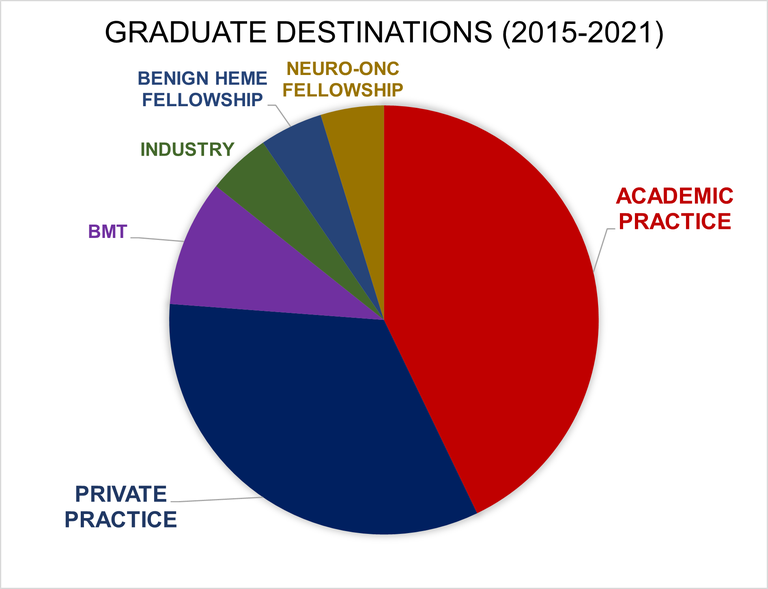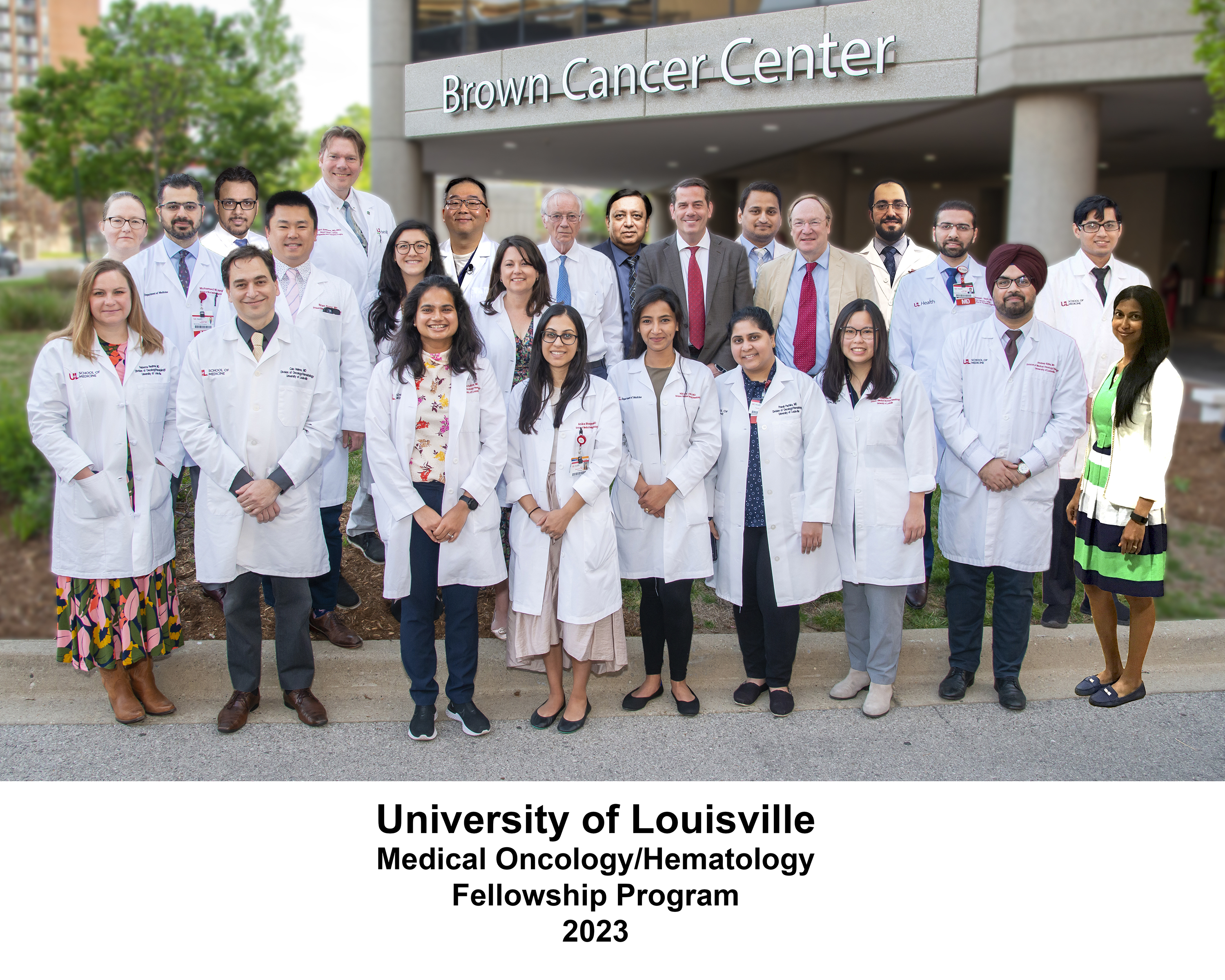Fellowship Program
Program Director: Goetz Kloecker, M.D., MBA, MSPH
Program Administrator: Saira Malik
Program Coordinator: Christine Crowe
Phone: 502-562-3829
Email: hemonc@louisville.edu
Four (4) medical oncology and hematology fellows are accepted each year; there are a total of twelve fellows in the program. Fellowship candidates must have completed an internal medicine residency in the United States. Our program is highly competitive and candidates with a record of excellence and strong letters of recommendation are invited to interview; the program is open to all eligible applicants regardless of race, color, national origin, sex, disability, or age.
Clinical Training
The Brown Cancer Center was opened in 1981, and medical oncology fellows have been training here for more than 25 years. The training program includes an extensive clinical experience. By the end of fellowship, the fellow will have seen virtually every tumor type, oncological problem and benign and malignant hematological disorder. The UofL-BCC is nationally recognized as a leader in immunotherapy and cellular therapy and fellows gain experience in all modalities of therapy. Training at the UofL – Brown Cancer Center also focuses on educating fellows with skills in research, patient safety and quality improvement.
Fellows receive training in inpatient hem/onc consultation at University of Louisville Hospital as well as UofL-Jewish Hospital, UofL Health - Rudd Heart and Lung Center. Fellows attend two to four clinics weekly during fellowship. Some of the Multidisciplinary Clinics at the UofL Brown Cancer Center that fellows train at include:
- Benign Hematology
- Blood Cancers, Cellular Therapeutics and Transplant Program Brain and Neuro-Oncology Multidisciplinary Clinic
- Breast Cancer Multidisciplinary Clinic
- Gastrointestinal Oncology
- Genito-Urinary Cancer and Sarcoma
- Gynecologic Oncology
- Head and Neck Multidisciplinary Clinic
- Hemophilia Treatment Center
- Thoracic Oncology, Skin Cancer and Melanoma
Bone marrow transplant experience is provided and required. The second 18-month training period of fellowship is very flexible and geared toward the interests of the trainee. Additional clinical rotations at our core hospitals are available, as well as electives in blood banking, pheresis, pathology, radiation therapy, gynecological oncology, outpatient specialty clinics, and pediatric hematology and oncology. Fellows may and are encouraged to have 1-1/2 years of research time.
Curriculum
For incoming fellows, the year starts with foundational topics (Summer Lecture Series), and fellows’ lectures continue after throughout the academic year. Numerous other teaching conferences are held every week, including the UofL-BCC Grand rounds, Solid Tumor Boards, Blood Cancers, Cellular Therapeutics and Transplant Program meetings, Oncology Pharmacy Meetings, Hemophilia Conference, UofL-BCC Basic Research Conference, Journal Club, Fellows’ Research and QI meetings and other invited speakers’ lectures. Fellows’ lectures are mandatory twice per week and on other days fellows are expected to present at tumor boards and other conferences. Apart from these, fellows attend board reviews and educational conferences throughout the year, with emphasis on updates around ASH and ASCO annual meetings.
Fellows’ Research and PSQI
Participation in research, clinical or basic science, as well as patient safety and quality improvement (PSQI) is expected from all the fellows. Opportunities are abundant. The UofL- Brown Cancer Center is dedicated to the development of research programs. Fellows are exposed to clinical trials in many areas, and basic science research opportunities are available at the UofL – BCC Clinical and Translational Research Building adjacent to the cancer center. Fellows routinely perform clinical research studies (see Fellows’ Research tab) and epidemiologic and statistical support is available. Although fellows focus on ASH and ASCO meetings for presenting their research, other conferences are supported based on interest and fellows have presented abstracts at San Antonio Breast Cancer Symposium, ISTH congress, ASBMT, ESMO, IASCLC and others.
Career development and mentorship
Medical oncology and Hematology is an ever expanding field and developing a career trajectory based on your clinical and research interests is important. Our program prides itself on a collegial environment, and many faculty members serve as mentors. Their various backgrounds offer a rich diversity of research and clinical expertise. Historically, a majority of graduates have gone on to academic positions, followed by private practice and then further training.



